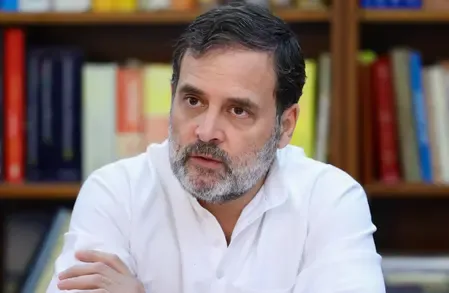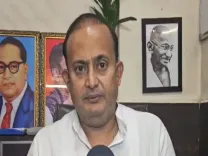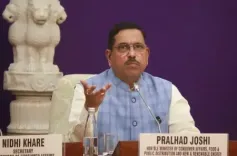Is the Mask Off? Rahul Gandhi Accuses RSS-BJP of Undermining Constitutional Spirit

Synopsis
Key Takeaways
- Rahul Gandhi's accusations against RSS-BJP highlight deep ideological divides.
- Claims about hostility toward constitutional values raise important questions.
- Debate on 'Secular' and 'Socialist' terms illustrates ongoing political tensions.
- Response from the BJP reflects a broader strategy to manage political narratives.
- Engagement from activists and opposition signifies rising concerns over constitutional integrity.
New Delhi, June 27 (NationPress) In a powerful criticism that has reignited political discussions nationwide, Congress leader and Lok Sabha Opposition Leader, Rahul Gandhi, has targeted the ideological foundation of the Bharatiya Janata Party (BJP) and its parent organization, the Rashtriya Swayamsevak Sangh (RSS).
In a post shared on the social media platform X, Rahul Gandhi charged the RSS with having significant discomfort with the fundamental principles of the Indian Constitution -- equality, secularism, and justice -- and attempting to gradually undermine these values.
He proclaimed, “The mask is off,” asserting that the RSS and BJP are not only indifferent to the Constitution but are actively antagonistic toward it.
According to him, their envisioned future for India is influenced by the Manusmriti -- an ancient Hindu scripture -- rather than the inclusive and egalitarian ethos of the Constitution devised by B.R. Ambedkar.
This strong condemnation surfaced as RSS General Secretary Dattatreya Hosabale suggested a “debate” regarding the inclusion of the words “Secular” and “Socialist” in the Preamble of the Indian Constitution.
These terms were incorporated during the 42nd Amendment in 1976 under the leadership of then Prime Minister Indira Gandhi amidst the Emergency.
While critics argue that this backdrop raises questions about the legitimacy of these terms, supporters view them as essential to the nation’s moral and political framework.
The Congress party swiftly responded, accusing the RSS of plotting to dismantle Ambedkar's democratic framework.
Rahul Gandhi has frequently revisited these ideological divides, recalling the writings of Hindutva ideologue V.D. Savarkar, who contended that the Constitution lacked roots in Indian tradition.
Recalling Savarkar's views, the Congress leader recently reminded Parliament that some leaders within the Sangh believed the “Manusmriti” should serve as the nation's foundational document.
Despite the BJP dismissing these comments as mere political theatrics, Rahul Gandhi's assertions have resonated with activists, Dalit groups, and members of opposition parties who are already alarmed by potential regressive moves against constitutional protections.






